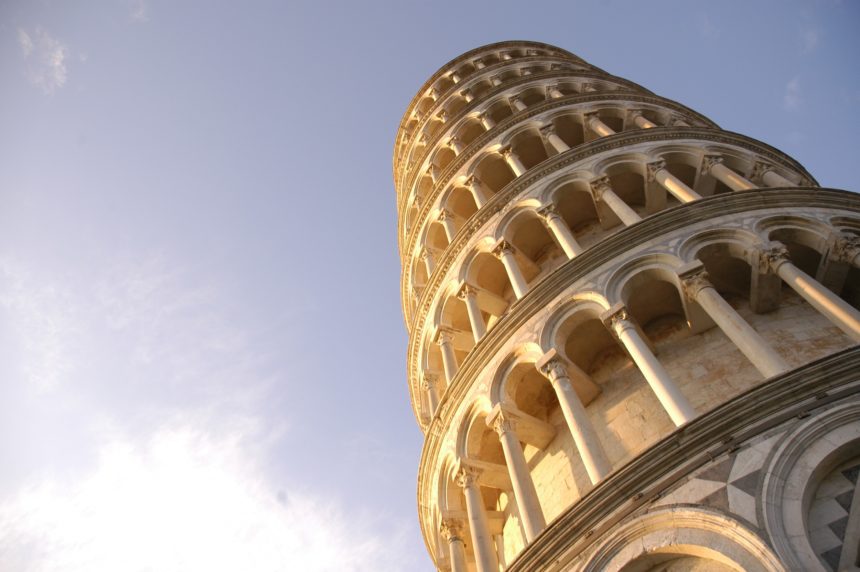ITALY’S economic woes are threatening the eurozone as it becomes the only country in the EU where house prices have dropped. National data released last week shows house prices have dropped by 0.5 percent in the third quarter of last year.
Italy is the only country in the EU where house prices reduced in the second quarter of 2017/18, with the rest of the bloc have reported house price growth of more than 5 percent.
And the fall is compounded by a 0.1 percent drop in the first quarter of 2017.
Italy’s real house prices have been falling continuously since 2007 and in real terms are now 23 percent lower. This has heavily damaged the construction and property sector as well as homeowners as 72 percent of households own their own property.
In 2016, 4.4 percent of construction firms went bust, as well as 5.5 percent in 2013, this is a lot higher than the 2.6 percent average across the industry, according to data from Cerved, an Italian business information provider.
The property market is also having an adverse effect on the country’s banking system, which is still reeling from the 2008 financial crisis.
Property-related lending is also suffering as the manufacturing sector has seen twice the amount of bad loans. A bad loan is a loan where repayments are not being made as originally agreed between the borrower and the lender, it may even never be repaid.
Property-related loans are remaining to drag in Italy. The property sector now accounts for more corporate bad loans than any other sector, 42 percent compared with 29 percent in 2011.
More than 80 percent of Italians think the economic situation is bad according to Eurobarometer, a series of public opinion surveys conducted regularly on behalf of the European Commission.
Italian Massimo Massimilla, chief executive of Algebris, an asset manager company believes dealing with bad property loans has also been slower than for other sectors.
Due to banks’ willingness to write off bad manufacturing loans at a reasonably early stage, they see little hope of being paid off.
Luca Dondi, managing director at Nomisma, an Italian think-tank, says that homeowners have been reluctant to acknowledge the reality of lower prices. This has fed in to the rising stock of unsold housing that has delayed a rebound.
A decade ago, property investors could help the housing sector to recover as they accounted for one in five transactions, however, now they are completely absent from the market.
On the other side of the coin, rising house prices are stifling Germany, one of the flagship countries of the EU. A large amount of the population in the country’s capital Berlin is outpricing the average earner.
Rents have risen by 72 percent over the last 10 years, and the purchase price for an apartment has doubled in the same period.
Achim Amann, CEO and co-founder of Black Label Properties, an estate agency in Berlin said: “In the 1990s we had tax cuts for people who promised to rent cheaply for 20 years after the building was constructed.
“We now want to see that developers are motivated to build and sell their properties cheaply so that normal people can buy them and create their own assets, rather than staying renters for the rest of their lives.”


Leave a Reply